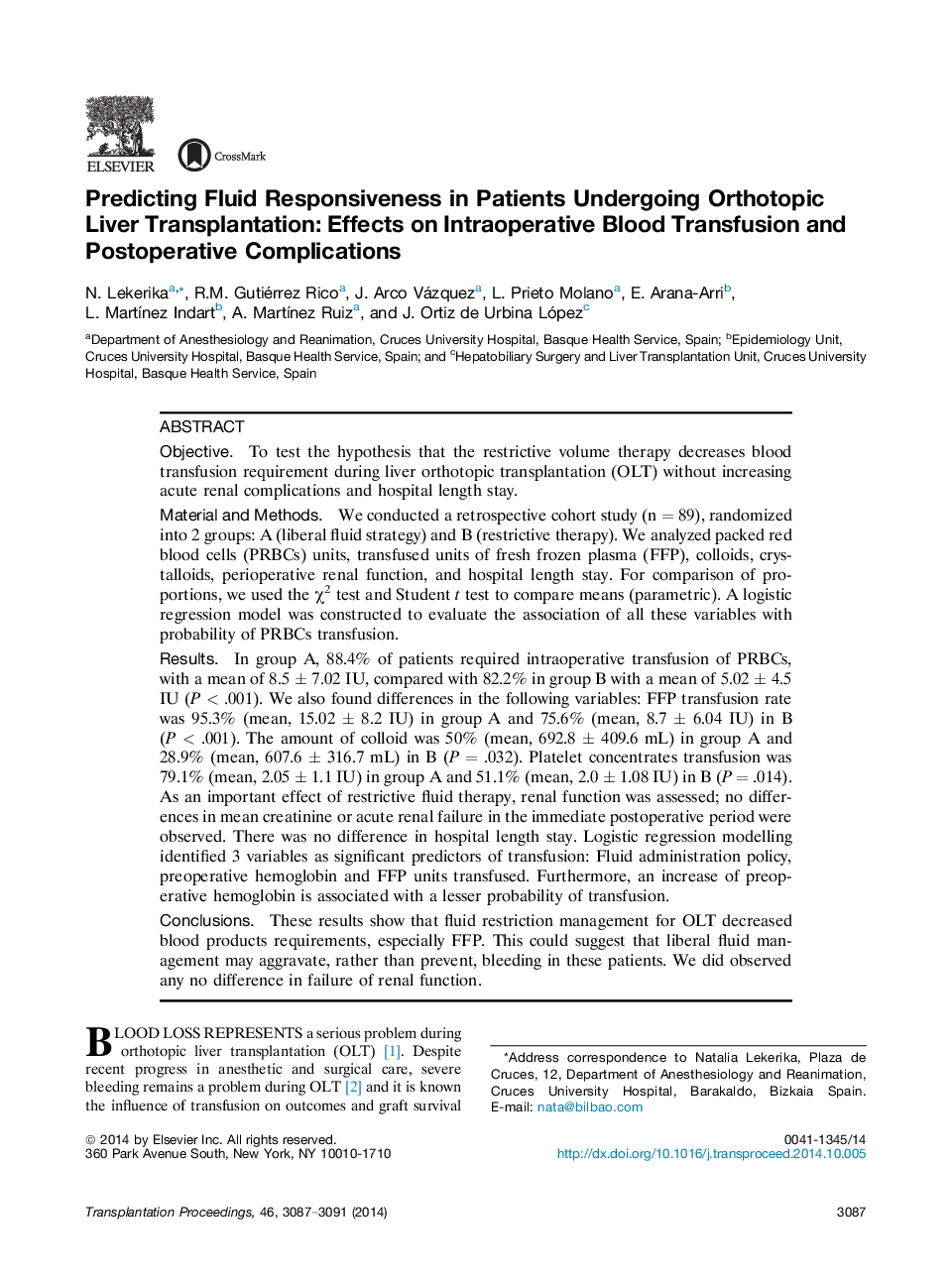| Article ID | Journal | Published Year | Pages | File Type |
|---|---|---|---|---|
| 4256622 | Transplantation Proceedings | 2014 | 5 Pages |
ObjectiveTo test the hypothesis that the restrictive volume therapy decreases blood transfusion requirement during liver orthotopic transplantation (OLT) without increasing acute renal complications and hospital length stay.Material and MethodsWe conducted a retrospective cohort study (n = 89), randomized into 2 groups: A (liberal fluid strategy) and B (restrictive therapy). We analyzed packed red blood cells (PRBCs) units, transfused units of fresh frozen plasma (FFP), colloids, crystalloids, perioperative renal function, and hospital length stay. For comparison of proportions, we used the χ2 test and Student t test to compare means (parametric). A logistic regression model was constructed to evaluate the association of all these variables with probability of PRBCs transfusion.ResultsIn group A, 88.4% of patients required intraoperative transfusion of PRBCs, with a mean of 8.5 ± 7.02 IU, compared with 82.2% in group B with a mean of 5.02 ± 4.5 IU (P < .001). We also found differences in the following variables: FFP transfusion rate was 95.3% (mean, 15.02 ± 8.2 IU) in group A and 75.6% (mean, 8.7 ± 6.04 IU) in B (P < .001). The amount of colloid was 50% (mean, 692.8 ± 409.6 mL) in group A and 28.9% (mean, 607.6 ± 316.7 mL) in B (P = .032). Platelet concentrates transfusion was 79.1% (mean, 2.05 ± 1.1 IU) in group A and 51.1% (mean, 2.0 ± 1.08 IU) in B (P = .014). As an important effect of restrictive fluid therapy, renal function was assessed; no differences in mean creatinine or acute renal failure in the immediate postoperative period were observed. There was no difference in hospital length stay. Logistic regression modelling identified 3 variables as significant predictors of transfusion: Fluid administration policy, preoperative hemoglobin and FFP units transfused. Furthermore, an increase of preoperative hemoglobin is associated with a lesser probability of transfusion.ConclusionsThese results show that fluid restriction management for OLT decreased blood products requirements, especially FFP. This could suggest that liberal fluid management may aggravate, rather than prevent, bleeding in these patients. We did observed any no difference in failure of renal function.
